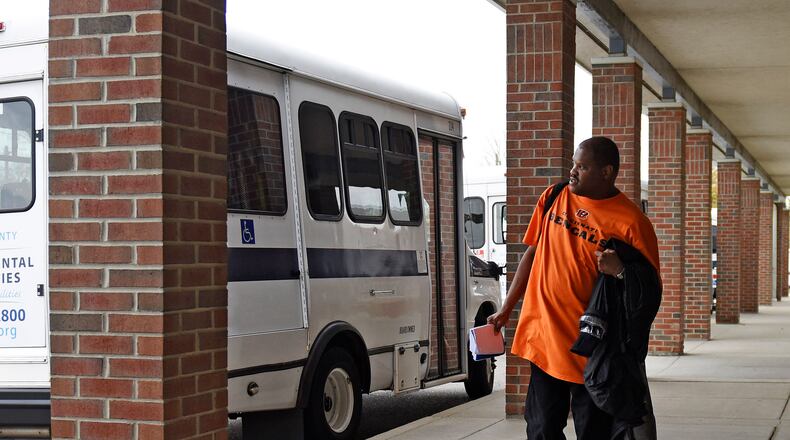The center served 125 developmentally disabled people and employed 40 workers when the closure first was announced for March 2017.
Superintendent Lisa Guliano said six of the seven clients left at the center have found new services and will be transitioned within a month. The official closure will be Nov. 12. Staff will work with the one remaining family to find an alternative.
Guliano said there are seven direct support staff, two managers and one nurse left who will be phased out gradually after they close out the building on Liberty Fairfield Road.
“All employees who are actively employed as of Nov. 30 will be placed on paid leave with their salary and benefits continuing through the month of December,” she said.
Some employees might transfer to other openings within the board or resign before that date.
“Employees left will be laid off effective Jan. 1,” Guliano said.
Federal and state mandates last year forced the closure because it was determined it was a conflict of interest for agencies that manage programs like the adult daycare to provide direct services to clients. Developmental Disabilities Board President Kathy McMahon-Klosterman said the transition has been done with the care and concern for the individuals served.
“Change is difficult but BCBDD has worked to make this transition as thoughtful as possible. Butler County DD will continue to assure that each person is treated with dignity and respect in our community,” she said. “With enrollment so low, fiscal responsibility dictates we close Liberty Center earlier than anticipated, but this is a positive indication that we have numerous qualified providers in Butler County and individuals we serve have the right to live, work and learn in the community.”
The deadline to phase out direct services was not until 2024 but the board announced a March 2017 closure date last year, prompting the mass exodus of employees and clients. As of last month the number of clients had dropped dramatically — from 125 to 10.
“It’s a little like we can pull this Band-Aid off really slowly and painfully with uncertainty, or we can just do it and say, ‘Now let’s move forward and let the healing, whatever needs to happen, begin’,” McMahon-Klosterman said about the early closure. “With a number of the families the parents and siblings are older, and wouldn’t it be in their best interest to know where their family is going to be, rather than wonder for five or six years where they might wind up.”
Guliano estimated the board could save $1.4 million a year with the closure of Liberty Adult Center. Another $180,000 savings will be realized with the center closing four months earlier than originally planned.
The board was also staring down a $3.6 million deficit at the beginning of the year, however Business Services Director Hailey Quinn said a state cost reimbursement has cut that amount to $2 million.
The largest contributor to the organization’s budget shortfall has been an increase in local waiver matching funds for Medicaid to keep people with disabilities integrated in the community.
This year the local match is $12 million, and BCBDD served 3,350 clients last year. The agency had 2,716 clients in 2011 and the Medicaid match was $7.6 million.
The phase out of personal property tax was also a big hit, going from almost $2 million in 2005 to $1,352 this year.
Probate Judge Randy Rogers and his court employees interact with the board, which serves about half of Rogers’ 1,000 guardianship cases. He said he knows they have had some trials to overcome, but he thinks highly of the organization.
“My experience, and I’ve been here for a while, is the Butler County DD does an outstanding job,” he said. “And they are frankly regarded very highly throughout the state in terms of innovative programs, in terms of process, because I’ve been around the state and I’ve heard what people say.”
About the Author
